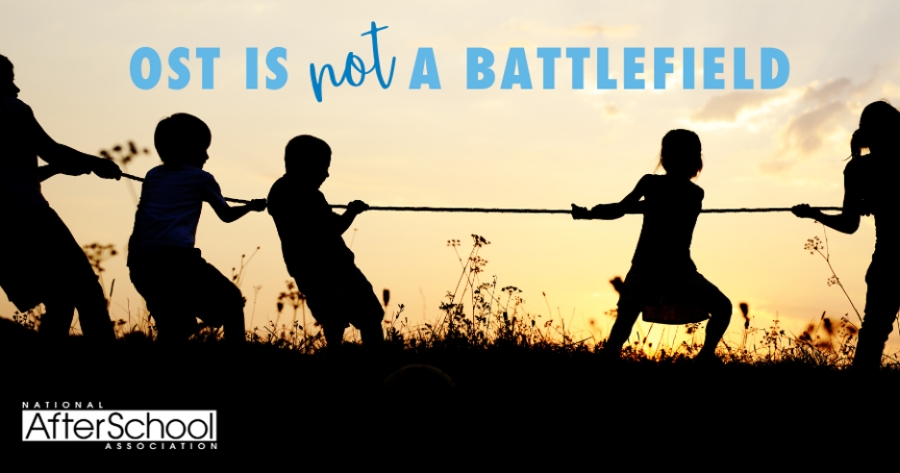Historically, soldiers on the frontlines of battle suffer the greatest casualties. This is not surprising. According to US government archives, 80 percent of the first soldiers to engage at the frontline on D-Day were not expected to survive. “Survival” expectations in OST programs are also low. It is common for programs to experience high rates of staff turnover, with some estimates coming in at about 40% per year.
When “frontline” staff are not expected to stay long, it can be easy to think of them as “covering” a group. They provide supervision but not much else. And given their anticipated brief tenure in the job, we often don’t invest in their preparation for the work.
The subtle influence of battlefield language also seeps into our approach to staff development. On the battlefield, frontline troops are expected to obey orders without hesitation. Making decisions or changing tactics in response to unexpected circumstances is not their role and their training does not develop the skills necessary to perform those functions. The problem when we think of OST staff, of course, is that working with young people is different. It requires specific knowledge and skills. To provide the foundations for healthy growth and development of children and youth – safe spaces, relationships with caring adults, a sense of belonging, and enriching experiences – staff need to understand child development and what to expect at different ages, they need to be able to apply knowledge about how children learn so that they can create engaging opportunities for discovery, and they need to understand the role of emotions, cultural norms, racism, and trauma in the complex dynamics of their everyday work. These are not small things. They are essential. We cannot build a professional OST workforce, one that will make the difference we care so deeply about, if we continue to treat the people doing this work as expendable frontline workers engaged in a battle for survival.
Our use of military language goes beyond its influence on how we think about program staff. Frontline medical staff who worked endless hours in dreadful circumstances during the COVID-19 pandemic were not battling their patients, they were battling the virus. When applied to the OST field, we need to consider its impact on how we think about children and youth. We must ask ourselves, who, exactly, is the enemy in this battle for survival? Who are OST “frontline” staff battling? The kids?
Language matters. How we refer to the people who support our children when they are not in school matters. We need to use language that reflects the goals of the work: to support, nurture, guide, and uplift children and youth. We need to use language that reflects the knowledge, understanding, and skills the work requires and the importance of continuous professional development. We need to use language that communicates the value and importance of the work.
So, what will it be? Youth Support Personnel? Youth Development Specialists? Youth Development Associates? I invite you to share your ideas in the comments. Ask questions to help us collectively consider the alternatives. Offer insights to help us identify our blind spots and biases. Weigh in on the ideas you like as well as those you don’t. Together, with our shared commitment to the people who do the work, the children we support, and the field we are developing, we can find language that lets the world know that OST work is important, that it deserves respect, and is essential to the healthy development of the next generation.
Contributed by Out-of-School Time SEL Solutions Consultant Charlene Voyce.

